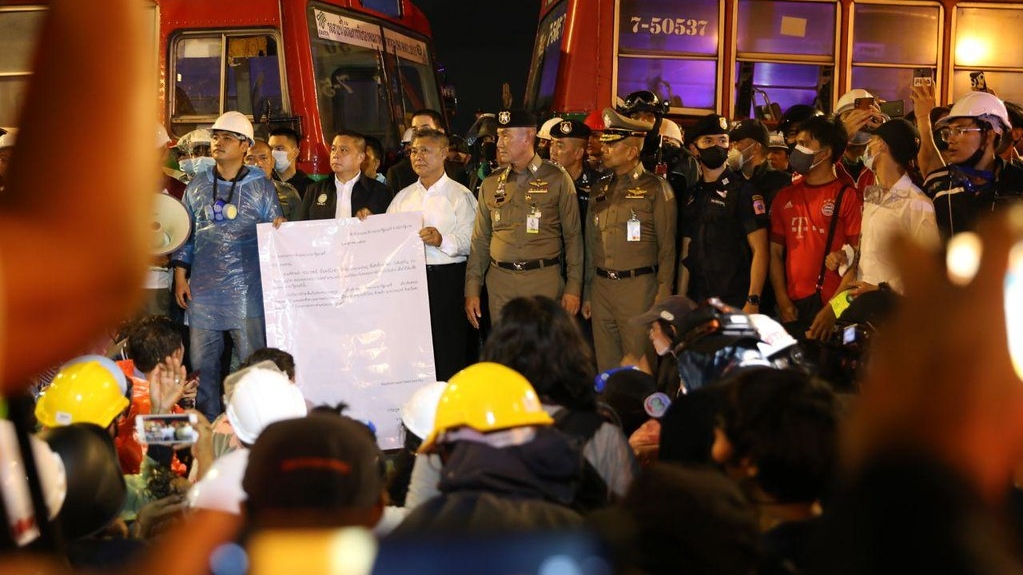The government of Thailand has repealed the emergency decree, barely a week after it was passed. On Thursday, October 22, a government order passed in the afternoon stated that the purpose of the emergency order that prohibited mass gatherings was supposedly achieved. The repeal of the emergency order coincides with an earlier “24-hour deadline” given by protesters on October 20 to repeal the decree, promising a “surprise” if the demand was not met.
The repeal of the decree also comes immediately a day after thousands of protesters marched on Wednesday, October 21, late in the night and submitted an unsigned letter of resignation and three-day ultimatum for the resignation of prime minister Prayut Chan-o-cha. The letter addressed to the “people” was received by the PM’s deputy secretary-general and the police after an hour of demonstration outside the Government House which houses the prime minister’s office.
With the submission of the letter, the representatives of the protest also gave a three-day ultimatum for the prime minister to vacate the position and release all political prisoners. The demonstration took place less than a week after the police and the paramilitary had forcibly cleared a similar demonstration outside the Government House. The submitted letter requires Prayut to concede abuse of his position as the head of government.
The letter read, “I, Prayut Chan-o-cha, have used arbitrary power, bought and sold votes, threatened to impose a gangster’s constitution, traded benefits and positions and used the institution of the monarchy as a justification to get hold of the position of the Prime Minister,” reported Prachatai. Despite the massive show of strength another protest was reportedly arrested late in the night on Wednesday.
The Chan-o-cha government had imposed an emergency decree on October 15, in a bid to put an end to the anti-government protests that have been raging for more than three months now. The decree banned public gathering of five people or more and imposed harsh restrictions on media coverage as well.
Failed crackdown on media
After the passing of the emergency decree, the government targeted media outlets and social media channels for reporting on the protests.
On Wednesday, October 21, Voice TV, a channel associated with the exiled Shinawatra family, along with the Facebook page Free Youth, had suspension orders for their online platforms revoked. On Tuesday, October 22, the Thai government acquired an order from the Criminal Court to shut down Voice TV’s online channels and Free Youth, for allegedly violating the Computer Crimes Act and the emergency decree, which prohibits circulation of data that “could create fear.”
The same court later found the orders to be unconstitutional and in violation of protection for media houses from closures or “deprivation of liberty.” Voice TV was recently targeted by the Thai police along with four others as part of the government’s crackdown on the three-month long protests, at the behest of the Ministry of Digital Economy and Society (DES).
After the initial court order, the DES was expecting similar suspension orders on other three news outlets — Prachatai, The Reporters and The Standard. After the order was passed, the Chief Justice of the Criminal Court reportedly reopened the case for review after finding procedural inconsistency in the order.
Apart from these media outlets in question, the police and DES had also flagged over 300,000 URLs as violating the emergency decree. The attempt at a sweeping crackdown on social media pages and online media outlets was decried by media groups and unions as an attempt to “to curtail press freedom.”





